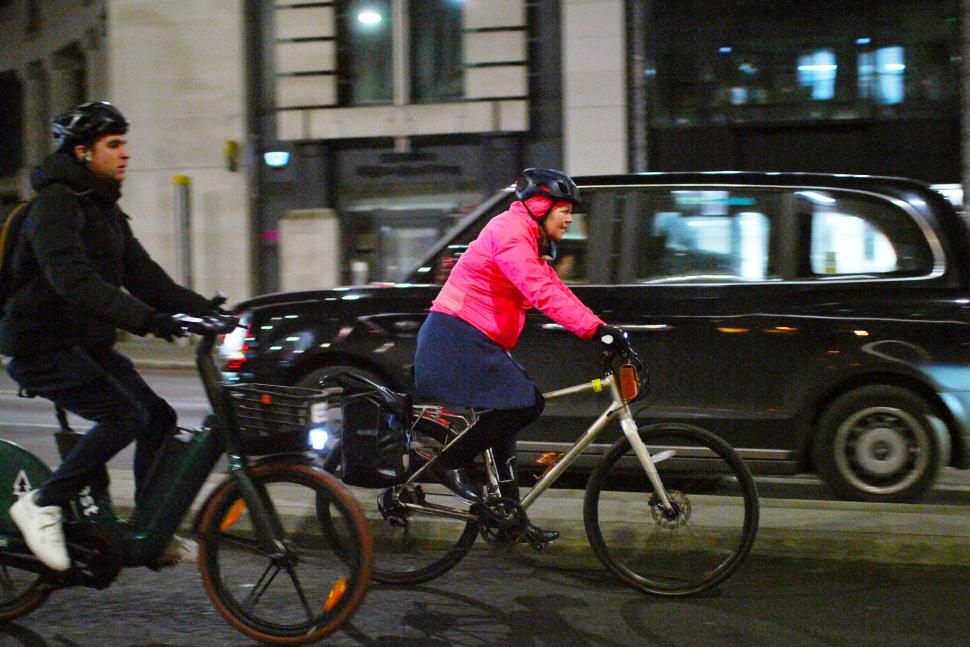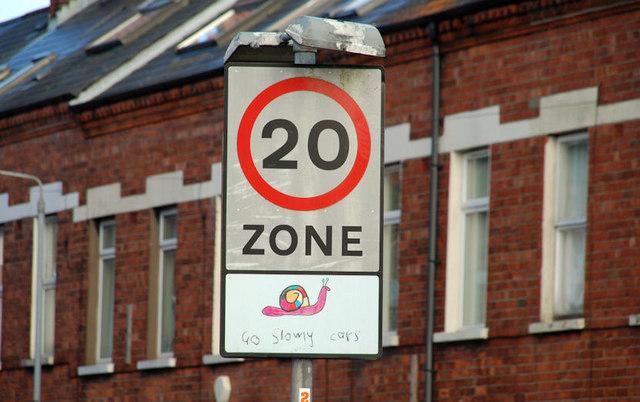- News
- Reviews
- Bikes
- Accessories
- Accessories - misc
- Computer mounts
- Bags
- Bar ends
- Bike bags & cases
- Bottle cages
- Bottles
- Cameras
- Car racks
- Child seats
- Computers
- Glasses
- GPS units
- Helmets
- Lights - front
- Lights - rear
- Lights - sets
- Locks
- Mirrors
- Mudguards
- Racks
- Pumps & CO2 inflators
- Puncture kits
- Reflectives
- Smart watches
- Stands and racks
- Trailers
- Clothing
- Components
- Bar tape & grips
- Bottom brackets
- Brake & gear cables
- Brake & STI levers
- Brake pads & spares
- Brakes
- Cassettes & freewheels
- Chains
- Chainsets & chainrings
- Derailleurs - front
- Derailleurs - rear
- Forks
- Gear levers & shifters
- Groupsets
- Handlebars & extensions
- Headsets
- Hubs
- Inner tubes
- Pedals
- Quick releases & skewers
- Saddles
- Seatposts
- Stems
- Wheels
- Tyres
- Health, fitness and nutrition
- Tools and workshop
- Miscellaneous
- Tubeless valves
- Buyers Guides
- Features
- Forum
- Recommends
- Podcast
news
BBC under fire over programme about "how best to share" the roads, titled... "Should cyclists stay in their lane?"; Cycling campaigns urge government to "hold their nerve" on 20mph speed limits + more on the live blog
SUMMARY
No Live Blog item found.
 Cyclists in London male and female in cycle lane - copyright Simon MacMichael
Cyclists in London male and female in cycle lane - copyright Simon MacMichael19 April 2024, 09:06
BBC under fire over programme about "how best to share" the roads, titled... "Should cyclists stay in their lane?"
At 12pm on BBC Radio 4 is the latest episode of 'AntiSocial' with Adam Fleming, a show that is self-professed "peace talks for the culture wars".
"In an era of polarisation, propaganda and pile-ons, Adam Fleming helps you work out what the arguments are really about," the BBC's website promo explains. Today, the topic is — yep, you guessed it — cyclists, a producer for the show suggesting it will be about "the debate between cyclists and motorists on how best to share" the roads. So, what is this "peace talks for the culture wars" episode called then? Erm... *checks and double checks notes*... "Should cyclists stay in their lane?"
In more detail, the episode description adds: "Cyclists shaming drivers online, fights over bike lanes, and the politics of pedal power.
"TV and radio presenter Jeremy Vine posts a video of a car failing to give way to him while he's riding a penny farthing. Cue angry comments hurling insults and telling him he'd be safer in a car — and sympathetic responses from fellow cyclists. What does the Highway Code actually say about priorities on the roads? What are the stats on cyclists and safety? And how and why has cycling become such a toxic topic?"
Unsurprisingly, the title of the episode has raised some eyebrows this morning (as has the producer's numerous messages to a wide array of potential guests, from anonymous anti-LTN (low-traffic neighbourhood) social media accounts to newspaper columnists responsible for such an award-worthy anti-cycling bingo full house as the one below...)
Earlier this week, we accepted an invitation to go on the show, an invitation that has since gone cold. But don't fear, live blog readers, thankfully, we were promised the show aims to take a step back to explore the facts, the context, and the differing views in detail, all in the hope of cooling things down, and is the opposite of the shout-y slanging matches often seen elsewhere during cycling discussions. We've got high hopes...
In fairness, during the social media dissection of the title, the Richmond coordinator for the London Cycling Campaign, Tim Lennon, said he's listened to the show before and it does tend to be a "pointing out the actual facts, rather than just being a two sides thing", so who knows? Maybe we will all be quite impressed come 1pm.
For now however, much of the online discussion is about the episode name, The Ranty Highwayman calling it "unhealthy" and "the type of show that gets people hurt on the roads".
Not just Charlotte, he's also reached out to well known anti ltner thefox. Just the title alone shows there's zero attempt at proper reporting around this. pic.twitter.com/1kv4VcePNb
— CykelTony (@tony_eh) April 19, 2024
We've been here before with cycling coverage on the BBC and how it's communicated with a title. Back in November 2022, Panorama aired an episode, which despite doing a good job of showing just how vulnerable people riding bikes can be, was called "Road Rage: Cars v Bikes", something the presenter we spoke to at-length during and after filming explained was a decision out of their hands, made pre-broadcast.
Some of that TV offering was actually solid enough, so maybe we'll be back in the same position later today with "Should cyclists stay in their lane?". Either way, from what we've seen people saying online, hopes aren't high.
19 April 2024, 12:03
Reaction to BBC Radio 4 AntiSocial... "Should cyclists stay in their lane?"
For those of you who weren't able to tune in, BBC Radio 4's AntiSocial episode looking at cycling (and questionably titled "Should cyclists stay in their lane?") at least delivered on its promise to avoid being a slanging match, the at-length format and calm discussion instantly improving the usual 'five-minute no holds barred shouting contest' for cycling-related discussions on TV or radio.
Lauren O'Brien represented the cycling side of the discussion, earning praise from those who listened for her patient explanations about why a cyclist might not use a cycle lane, how cycling could be made safer and various other topics. One listener concluding she "pretty much had a monopoly on being reasonable in that discussion".
The show also heard from James Woudhuysen, a journalist and visiting professor at London South Bank University. Among other things, he urged for greater Highway Code knowledge and viewing all road users in a more humanising way, rather than through respective transport tribes. Admittedly, those points came around plenty of unchallenged "war on the motorist" claims, an assertion that "snooping" camera cyclists are "very dangerous for the whole fabric of society", comments about empty cycle lanes, and a bizarre anecdote about having "nearly been run over by lots of women in very tight Lycra [... but] nobody complains about their testosterone".
That last one earned pushback from host Adam Fleming about why what they were wearing is relevant. Again, in fairness, Fleming was quick to question some of the claims made and the show was interspersed with a lawyer explaining the 2022 changes to the Highway Code, an academic giving a history of cycling in Britain, and stats from a producer. There was certainly far more work and research than your standard Good Morning Britain or Talk TV cycling segment that we're all too familiar with by now, but did it go far enough? Here's some of the early reaction...
I thought you did very well and was disappointed that your debating partner was allowed to get away with generalisations, straw man arguments and untruths without challenge.
I think if @adamfleming wants to have these type of people on he should be prepared to challenge them.— Cllr Liam Calvert 💚 (@LiamCalvert) April 19, 2024
noblecyclist: "Please challenge this guy when he mentions the fictitious 'war on cars'. There is no war on cars."
> 'The War on the Motorist' deconstructed — looking at the truth behind the myths
Plenty of discussion around the multiple minutes spent questioning why cyclists might not use a cycle lane...
Ian Cumming: "Why might I not be in a cycle lane? It may be strewn with litter, obstacles, or busy with slower cyclists and/or pedestrians. Given that I ride at 20-30mph and sometimes faster — the road seems like the safest and most considerate place for me to be."
#BBCAntisocial @adamfleming
Why don't cyclists use cycle lanes? pic.twitter.com/zXWDEwuDXr— Drew (@drewsnx) April 19, 2024
Not great feedback for guest selection (although we're yet to see a complaint about one of the guests... no prizes for guessing)
Chris Whear: "Who is the guy, James? He is arrogant and biased. As a driver of over 50 years the last 10 have seen terrible driving standards and rage from car drivers (and some other groups) towards all road users. If he doesn't see that they [cyclists] are vulnerable there's no hope!!"
#bbcAntisocial
This man is ridiculous.— Bjbrightwell (@bjbrightwell) April 19, 2024
And before I forget, a bit more reaction to that title, cycling campaigner Ruth Mayorcas calling it "utterly disgraceful".
"Every day my life is at risk from drivers who simply do not understand cycling as utility/modus operandi — and this simply compounds it," she said. "Why don't you get some lived experience @simontulett (one of the show's producers) and come cycle with me?"
Anyone get a chance to listen in? What were your thoughts? Better than the usual 'broadcast media does cycling' fare, but what did you think? The full episode is available here...
19 April 2024, 15:58
Happy Friday!
It's the weekend...
19 April 2024, 15:48
Bianchi presents the cycling world an "unprecedented experience"... to view a holographic Specialissima RC model with Apple Vision Pro headset
We're sensing a good ol' caption contest...
As part of Milan Design Week, Bianchi has offered the cycling world (or those in striking distance of the Italian city, at least) an "unprecedented experience" to view its Specialissima RC road bike in holgraphic form through the power of the Apple Vision Pro headset.
Bianchi says it allows viewers to see a visualisation of the complete bicycle in 3D, "even exploding into its components set in the physical space where the visitor is located". On a completely tangental non-cycling point, if anyone fancies a Friday laugh, look up that time Ronnie O'Sullivan tried to play virtual reality pool with a headset like that. You can't lean on the table, Ronnie, it doesn't exist. Anyway, back to cycling...
"Bianchi's vision is constantly focused on the future and seeks to integrate the most innovative technologies," explained Claudio Masnata, marketing and communications manager at Bianchi. "Thanks to the collaboration with Zampediverse in this experiment, we can reduce the boundary between physical and digital spaces by offering an experience that didn't exist before and by laying the groundwork for new product presentation methods."
19 April 2024, 14:05
You're completing an indoor trainer session when... thousands of football fans spot your efforts...
Excellent pic.twitter.com/iTmW3rQbgL
— Nooruddean (@BeardedGenius) April 19, 2024
19 April 2024, 13:41
"This is one of the very worst storylines Neighbours has ever run": Australian soap horrifies viewers with cyclist "serial pooper" plot
On to the day's biggest news story. Neighbours, the Australian soap which returned to screens last year, has horrified its viewers with an ongoing plot about a man who can't control his bowels when cycling. I hope you've finished your lunch...
Could Karl really be the serial pooper? 💩 pic.twitter.com/8ikQ5bYnfe
— Neighbours (@neighbours) April 18, 2024
Apparently the plot is inspired by the real-life "poo jogger" case that News.com.au claims gripped the country in 2018. Anyway, apparently someone is covering the lawns of Erinsborough and the community is shocked. Someone on the writing team's surely just a huge pro cycling fan, right?
The plot hasn't gone down well with Neighbours fans, the show inundated with comments about it being "disgusting".
"This is one of the very worst storylines Neighbours has ever run. Just disgusting," one said.
"This was funny the first time, but just gross now, as a Dr he would know the health implications of doing this in public places," another said.
19 April 2024, 12:46
Hit-and-run driver without licence who left cyclist with multiple injuries jailed for a year and disqualified from driving for four years
The cyclist suffered multiple fractures and other injuries, and died nine months after he was hit by the driver who already had six previous convictions for 16 offences. Read more...
19 April 2024, 10:58
QOM (Queen of the Maternity Ward)
thinking about this woman who recorded this as a workout on strava pic.twitter.com/i0Z2bjVI3C
— “paula” (@paularambles) April 19, 2024
19 April 2024, 10:35
Kona Bicycle's parent company appoints new CFO amidst fears of "cost-cutting measures" after brand pulled out of major cycle show at last minute
The topic of yesterday's company "town hall" meeting remains unknown...
19 April 2024, 10:12
"They were very happy with that": Tom Boonen bribed Qatari customs agents with nude magazines
A bizarre story next. Classics legend Tom Boonen has revealed how at the 2004 Tour of Qatar he got into (and out of) trouble due to some nude magazines at the airport. Speaking to Sporza's Wielerclub Wattage podcast, Boonen explained that due to dodgy hotel internet, he and his teammates often bought magazines of a certain genre at Brussels airport to keep them company when away from home.
"Before the flight to Qatar I bought a car magazine, the P-magazine, a Ché, a Playboy and some other booklets," Boonen said (we'll look past the strange amount of detail for a 20-year-old shopping haul). "When we landed in Qatar, we had to wait a while for the luggage. I had left my backpack with magazines with the teammates and was waiting at the baggage carousel.
"Nick Nuyens wouldn't have thought of anything better than taking one out of my backpack and leafing through it. I already had an idea that the customs officers were watching us. At a certain point I saw one of those customs officers say to a fellow customs officer: 'Those men are looking at a book and there are naked women in it'."
Threatened with punishment for the magazines, Boonen says it suddenly dawned on him that a mutually beneficial agreement could be found... "Those customs officers accepted those magazines and were very happy with them," he explained.
19 April 2024, 08:48
Pinarello marks its return to cross-country mountain biking with the Dogma XC
Our mates over at off-road.cc have everything you need to know about Pinarello returning to the cross-country mountain bike scene, officially unveiling the Dogma XC after its race-winning appearances in 2023 under Tom Pidcock and Pauline Ferrand-Prévot.
> Pinarello marks its return to cross-country mountain biking with the Dogma XC
Described by Liam as "cross-country mountain biking's worst-kept secret", given its high-profile appearances last year. He also got the chance to take the bike for a spin and gives all his thoughts in a first ride review.
19 April 2024, 07:58
"Lower speeds save lives": Cycling campaigns urge government to "hold their nerve" on 20mph speed limits
Cycling UK and Cardiff Cycle City have urged the government to stick with 20mph speed limits, after Transport Secretary Mark Harper yesterday said the speed limit zones should "only be used in the right places" and that "it must be frustrating for those Welsh drivers ignored by Labour and for Welsh taxpayers who have to pick up the bill".
That reaction came after Ken Skates, Wales' new transport minister, had suggested there will be "changes" on the default 20mph speed limit policy.
Gwenda Owen from Cycling UK said: "The Welsh Government's own survey showed that four out of five adults in Wales would support a 20mph speed limit in their neighbourhoods. Clearly the vast majority of people recognise slower speeds are good for communities, the environment and the wellbeing of children. It's also the right move to increase the appeal of healthier alternatives to driving.
"Lower speeds save lives, and 20mph is a reasonable expectation where people live, work and play, not just outside schools and hospitals. The reality is, children, older people and other vulnerable groups aren't tethered to single stretches of road outside schools and hospitals. If we enable more people to travel by bike and foot, they need to feel safe doing so. Lower speed limits are an important part of creating towns and cities where people have real choices in the way they travel.
"Local authorities are able to make exceptions to the default 20mph in line with set criteria. However, we recognise that there have been differences in the way some councils have applied the criteria and welcome the review of the guidance. The Welsh Government did the right thing, rather than the easy thing, in introducing the 20mph default, and we're urging Ministers to hold their nerve for the good of Welsh communities."
Likewise, Cardiff Cycle City released a statement asking the Welsh Government to "stand firm on 20mph" and stating that the campaign was left "disappointed and alarmed" by Skates' assertion that there would be changes to the 20mph policy.
"In our view, there is no need to change the policy," a statement said. "Local authorities already have the power to adjust speed limits where appropriate. It appears that Mr Skates has succumbed to pressure from a tiny but vocal political minority. We hope that he will put people before politics and leave this popular and effective policy in place, safeguarding the health and wellbeing of all members of our communities."
Cardiff Cycle City statement in response to @KenSkatesMS recent announcement on the 20mph policy. pic.twitter.com/LQemrgfpOz
— Cardiff Cycle City | Dinas Feicio Caerdydd (@CdffCycleCity) April 18, 2024
Dan is the road.cc news editor and joined in 2020 having previously written about nearly every other sport under the sun for the Express, and the weird and wonderful world of non-league football for The Non-League Paper. Dan has been at road.cc for four years and mainly writes news and tech articles as well as the occasional feature. He has hopefully kept you entertained on the live blog too.
Never fast enough to take things on the bike too seriously, when he's not working you'll find him exploring the south of England by two wheels at a leisurely weekend pace, or enjoying his favourite Scottish roads when visiting family. Sometimes he'll even load up the bags and ride up the whole way, he's a bit strange like that.
Latest Comments
- mark1a 0 sec ago
It's a good point and while I have no idea about whether the industry relies on the high end segment in terms of revenue, they definitely do in...
- Rik Mayals underpants 4 hours 2 min ago
Here's my cycling related Christmas gift. Beautiful enamel garage sign to go above my Campagnolo Super Record RS equipped Colnago.
- Rendel Harris 8 hours 10 min ago
No idea if Cancellara was using a motor or not, I hope not as I greatly enjoyed him as a rider, but the tech was certainly available, I can...
- wtjs 9 hours 48 min ago
Fair enough:...
- SecretSam 10 hours 59 min ago
Usual ugly Pinarello, bumps and curves where they aren't needed. And, according to Mapdec, not well built.
- Rome73 13 hours 6 min ago
That's not strictly true - Reform will legalise immigrant baiting, trans bashing and tar and feathering of anyone woke. Loads of fun for all the...
- Rendel Harris 12 hours 53 min ago
What's a "legitimate cyclist" please? Someone who doesn't conform to your arbitrary norms? At the age of 56 I admit that you have 13 years more...
- mattw 1 day 3 hours ago
This risks turning me into a hanger and flogger....
- Spangly Shiny 1 day 9 hours ago
I had the pleasure of owning two of the featured builders here, in my history. When I joined the Army in 1971, I took with me my curly Hetchins:...










Add new comment
70 comments
Just asking out of interest, does anyone know of a galaxy that isn't far, far away?
Depends if you're a Cosmologist working in light-years or a civilian working in terrestrial units..
I though those in the business used parsecs - or MPc / GPc for the intergalactic? The andromeda galaxy at 0.78 Mpc is right next door!
EDIT - and of course redshift when you get really far away.
The Milky Way's fairly close
Getting there e.g. to the middle would be more than an Audax. On the plus side air resistance is less of a worry but I think grip would be lacking. And a shortage of cafes and petrol stations for refueling.
Here's a great website showing the different scales of stuff in the universe: https://scaleofuniverse.com/en
Unfortunately, they missed out the distance that a typical UK driver would be prepared to walk
I see it had hail, but I couldn't find snowflake. Google does confirm he's 1.73m though.
Notice a common theme when motorists are 'disadvantaged' for the benefit of road safety? Comments such as "angry" and "frustrated" are liberally bandied about by those motorists. Strikes me that those are two qualities that tell me those people shouldn't be allowed in charge of a tonne or more of lethal machinery in need of careful use...
You've lost me - who's 1.73m?
Farage.
This one.
Isn't that basically what we did to our High Streets & Main Streets in the 1960s?
It would have been fine, except the stupid council put in a couple of cycle hoops.
… and they only left it there for a minute while the TIE fighters got back on board.
Of course there is ... it's called a "cycle lane"
I'm guessing that Hierarchy of Responsibility didn't appear...
Danielle Griffith, deputy practice manager at Kinfauns, in The Street, Little Clacton, raised £1,115 by clocking up 40 miles on a static bike while colleagues and clients chucked cream pies at her.
https://www.gazette-news.co.uk/news/24259150.clacton-vet-practice-manage...
I'm more than willing to sponsor the road.cc team for this ! Or will Rendel step up ?!
BBC in incorrect language/bad reporting (regarding cycling) shocker...
Not.
"TV and radio presenter Jeremy Vine posts a video of a car failing to give way to him while he's riding a penny farthing..."
should be
""TV and radio presenter Jeremy Vine posts a video of a DRIVER failing to give way to him while he's riding a penny farthing..."
Unless of course the car was autonomous/self-driving.
http://rc-rg.com
You should know by now that drivers are never responsible for their vehicles - just look at the results of court cases.
The Sentencing Council has decided that the harm of causing death with a deadly vehicle is trivial so custodial sentences to be exceptional, not an aggravating factor.
This is why being a cyclist must become a protected characteristic so that discrimination law applies..
20 MPH outside schools and hospitals.
Question: Where are children and poeple that go to hospital, when they are not in school or crossing the road to the hospital?
Answer: They use all the other roads / pavements not outsire schools and hospitals
Quite so, which is why our village 20mph zone covers the whole residential extent.
Of course, enforcement is another thing..
Yes, this "outside schools and hospitals" is so stupid it beggars belief...
I'm not sure I do agree with 20mph outside schools; they used to just have flashing lights saying 'slow'. If you do have a 20 limit past a school, at least make it part-time; otherwise, you have a limit that changes at other times for no reason. The more that limits change for no apparent reason or in arbitrary locations, the more likely drivers are to dismiss them as irrelevant or not even notice them. If you don't know when to slow down past a school, you shouldn't be driving.
I've driven past schools at school times before, and even doing 20 quite naturally does not feel safe. There's lots of kids about, lots of pedestrian activity, and many parked cars blocking my view. I could then drive past the same spot late at night at 30mph.
If I were assessing someone who drove past a school at school times at 30mph, that would be a major driving test fault and an instant failure. If the same person drove past that school late at night at 20mph and held up traffic, that would also be a major fault and an instant failure.
You have never been able to drive 30mph, bowl over a child then claim in court 'I wasn't speeding'. The same could be said for any narrow side street lined with parked cars; try doing 30 down there if you dare. Anyone doing that would fail a driving test also.
There used to be far more emphasis on better driver behaviour and not a drive-by-numbers mentality. Could you drive safely if your speedo broke? The fastest speed you can go varies widely; speed limits are meant to assume ideal conditions, and this is why there are reckless and dangerous driving laws on top of speed limits. If people aren't able to judge their speed correctly for the conditions, don't give them the licence in the first place.
You do know that 20 is the upper limit? You don't have to drive at 20 if the environment doesn't feel safe at that speed...
I remember my motorcycle instructor doing a ride review with me and saying, "We got to that school zone with a 20mph limit, you went down to 19..." "Yes," I said, thinking I was going to be praised for awareness and doing the right thing. "It's literally a hundred metres, why not go down to 10/12 mph for a few seconds?" Twenty-five years ago but never forgotten it.
With speed limits it's the "anchoring effect" - so they become targets!
I think this illustrates a common heuristic of "law abiding" - ultimately not limited to driving of course. Something like:
"obviously I wouldn't break laws for the sake of it but it would be weird to be pedantic about things like speed limits. After all 'everyone does it' and 99% of the time it's fine. I'm a good driver, after all. So I ease off a bit if I see the kids outside the school - but mostly they're not so why not crack on? As long as it's not 'taking the piss' like doing a ton on a motorway, or too far above 40/30 mph in a 30/20 zone (I do try to keep up but you can't blame yourself if you occasionally get distracted) or going through a red light once it's 'established'..."
Also "...but holding up traffic". "Don't hold up traffic" almost seems to be an axiom in the UK! There are technical reasons for questioning this of course (e.g. the phenomenon of induced demand. Make more space to avoid the traffic holding up the traffic, get more traffic). However I think choosing lower speeds in some places is more of a value choice.
That is - bringing down speed limits (and - as has been measured - often speeds) in certain places allows for several things. (Which may require additional measures of course - but would be much more difficult or not be possible without reduced motor traffic speeds). "Nicer places" as well as safer streets, plus less suppression of active travel etc. [1] [2].
However the counter argument (apologies - I'm simplifying this) certainly applies a direct calculation "if minute is worth x pounds, thus delaying y drivers by z minutes costs money - and more money that what we calculate we're saving in terms of the cost of road casualties".
Pages